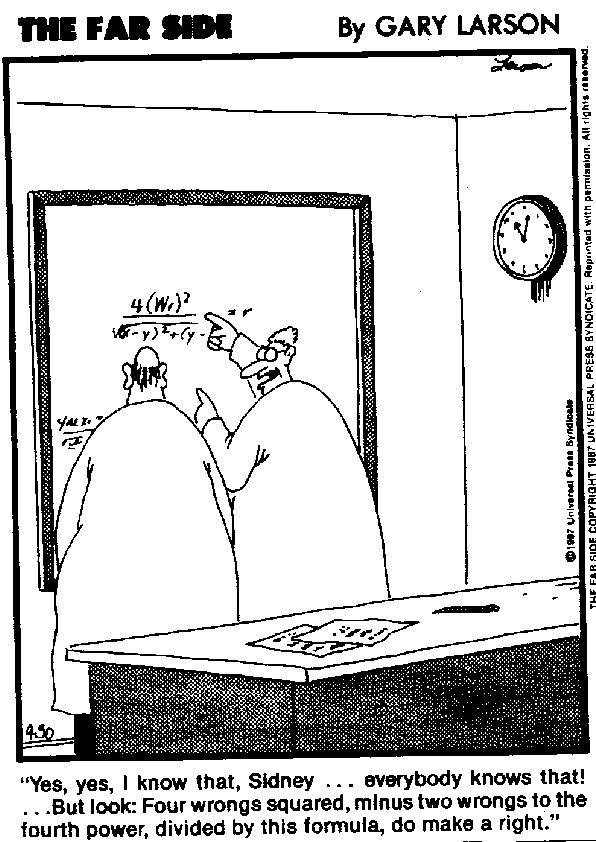Sunday, December 21, 2014
I am who I am
Oh, that Asagai, out of the blue asking me to go with him to Nigeria. That would be a dream come true. I know that she told me I "ain't old enough to marry nobody" (Hansberry 149), but now is the time for growth. Now that we've moved into a new house, an actual house, we can begin the end of assimilation. No longer must we follow society's ignorant rules. Why can't women be doctors? Why can't blacks live in white neighborhoods. Oh, I'm sure mama will let me marry Asagai and move to Nigeria with him after we get settled into our beautiful new house. We do not need to dream through a single, tiny window, where light fights its way in every day. Now that mama's dream of living in a real house is fulfilled, I'm sure she'll let me pursue my dream. For brother pursued his dream and failed, yet mama never stopped loving him. Also I know mama isn't the shallow type to make me marry that prick George. Not only that, but brother also might become the head of the family. Now that he's proven himself to be a real man, it'll be awesome to see mama's tyranny finally end. It's not that I hate mama, it's just her God talk always bugs me. Anyways, becoming a doctor in Nigeria would be amazing. I wouldn't need to assimilate, and I'd finally be with my true ancestors. I'd finally find out who I really am.
Sunday, December 14, 2014
A Diamond as Big as a Pink Elephant
Happiness is a concept so easily grasped, yet so hard to maintain. The world is full of hardships, as seen in Fitzgerald's short story, A Diamond as Big as the Ritz. Although happiness is first felt when obtaining wealth, it is soon lost in the abyss of greed and jealousy: John experiences first hand how wealth leads to corruption. In a once upon a time fairy tale land, Fitzgerald illustrates ideas so true to man kind in such a far fetched fashion. Although money often leads to corruption and despair, humble fortune can bring true happiness. However, in the case of the Washingtons, fortune can lead others towards the path of inevitable destruction. Like Moses being forbidden from entering the promise land, an act that started innocently led to the unavoidable punishments. Had the Washingtons simply left the giant diamond alone and lived a humble comfortable life, they would have lived a very peaceful happy life. However, due to greed and corruption, evil deeds were done to keep such unnecessary wealth from the off chance that someone else would have found the diamond hidden inside the mountain. One man's corruption causes everyone to suffer. Like a pink elephant's tusk, the diamond as big as the Ritz was so unnecessary, yet so desirable.Fitzgerald's far fetched story is a great example of rhetoric because it clearly shows the outcome of being rich and corrupt. Today's society also portrays such ideas; for example, Kwame Kilpatrick was sentenced to 28 years in prison for corruption. It's crazy how such bizarre, unbelievable stories can have such true themes.
Sunday, November 30, 2014
Chasing Dreams
Dreams are meant to motivate people to work. They are desires which may end up becoming a reality. However, dreams should not be focused on to the point where nothing else matters. Sure, dreams are nice, but tunnel visioning on a single dream isn't the way to go. In Gatsby's case, his absolute focus on his dream of ending up with Daisy led to his ultimate demise. His dream of being with Daisy causes him to be willing to take the blame for Myrtle's death, and he even tells Nick, "I'll say I was" (143) when Nick asks Gatsby if Daisy was driving. Gatsby's focus on his ultimate dream of being with Daisy prevents him from seeing the repercussions of his actions and decisions. There's no way Gatsby can be with Daisy if he's in jail, or in this case, dead. Not only is tunnel visioning on a dream bad, but it also leads to the inflation of said dream. Nick realizes that through the years, Gatsby's expectations of Daisy may be higher than she can ever achieve; during the tea time with Gatsby and Daisy, Nick thinks that in some ways Daisy must have "tumbled short of his dreams" (95). Therefore, focusing on one dream is good, but it should not dictate someone's life. In Gatsby's case, his inability to move on from Daisy led to his ultimate demise. Sometimes it's better to let a dream go than to go down with it, for letting go of one dream may sprout new dreams to pursue. Broken dreams not only make people stronger, but they allow people to continue to chase better, bigger dreams.
Therefore, people should always chase their dreams, but they shouldn't let their dreams solely control their lives.
Sunday, November 23, 2014
Right Wrong.
Jay Gatsby has turned out to be a very interesting man. The mysterious descriptions and rumors of him in the beginning of the novel stimulates curiosity. What sort of character will this man turn out to be? A man described as having a "gorgeous" (Fitzgerald 2) personality and being "related to one of those intricate machines that register earthquakes ten thousand miles away" (2) gives off the impression of being a good-hearted and important character. However, his love for Daisy isn't exactly righteous. Lusting after a married woman is generally frowned upon in society, yet Fitzgerald has somewhat justified his lust. It's first established that Daisy's marriage with Tom isn't very stable. Jordan even bluntly says "Tom's got some woman in New York" (14). Not only does this allow Gatsby's lust to seem more innocent, but Gatsby's good morals are once again reassured at the meal he has with Nick Carraway and Meyer Wolfsheim. Wolfsheim claims to Carraway that Gatsby "would never so much as look at a friend's wife" (72) is the epitome of irony. Gatsby is said to not look at others' wives, yet he lusts after Daisy. However, the fact that Gatsby's acquaintance believes that he would never commit adultery gives off the impression that his love for Daisy isn't bad. Therefore, although Gatsby's love for Daisy isn't exactly "morally right" Fitzgerald is hinting at the fact that it may indeed not be as bad as it seems.
Sunday, November 16, 2014
Stability in Change
Punctuation's consistent rules are needed to provide a stable structure for a constantly evolving world, thus allowing man-kind to advance at a perpetual rate.
Although punctuation is often seen as inconvenient and even unnecessary, it is needed to bring order to a world filled with chaos. Some say that punctuation rules need to be updated, yet those people don't give specific changes that need to be made. Changes like the pilcrow and the hedera have indeed "enjoyed temporary places in common usage before fading from view" (Source A). Therefore, history itself has proven that the current rules are adequate. Also, like Ben Dolnick, many people have experienced first hand, how at first glance some punctuation seems unnecessary, but after further inspection the true beauty and "exquisite tension" (Source E) can be fully appreciated. Also, Dolnick's point that no literary advice should be "adopted mindlessly" (Source E) resonates with the idea that change should not be desired for the sake of change. Sure the ever-changing world inspires innovative ideas, but structural basics to human-kind like punctuation have no need to be altered. For if they are altered like the world is, society will no longer have a mutual basis to which they can express their ideas. Whether it's through the use of the comma that is the most "usable of all the stops" (Source D) or the semicolons that give off "a pleasant little feeling of expectancy" (Source D), today's punctuation helps express anything from a simple note to a friend to a world-changing idea. Therefore, through the consistent templates of punctuation, the world can continue to grow.
Although punctuation is often seen as inconvenient and even unnecessary, it is needed to bring order to a world filled with chaos. Some say that punctuation rules need to be updated, yet those people don't give specific changes that need to be made. Changes like the pilcrow and the hedera have indeed "enjoyed temporary places in common usage before fading from view" (Source A). Therefore, history itself has proven that the current rules are adequate. Also, like Ben Dolnick, many people have experienced first hand, how at first glance some punctuation seems unnecessary, but after further inspection the true beauty and "exquisite tension" (Source E) can be fully appreciated. Also, Dolnick's point that no literary advice should be "adopted mindlessly" (Source E) resonates with the idea that change should not be desired for the sake of change. Sure the ever-changing world inspires innovative ideas, but structural basics to human-kind like punctuation have no need to be altered. For if they are altered like the world is, society will no longer have a mutual basis to which they can express their ideas. Whether it's through the use of the comma that is the most "usable of all the stops" (Source D) or the semicolons that give off "a pleasant little feeling of expectancy" (Source D), today's punctuation helps express anything from a simple note to a friend to a world-changing idea. Therefore, through the consistent templates of punctuation, the world can continue to grow.
Sunday, November 9, 2014
Beauty and the Beast
"It was in a dark, wet place, its head covered with great O's of wool, the black face holding, like nickels, two clean black eyes, the flared nose, kissing-thick lips, and the living, breathing silk of black skin. No synthetic yellow bangs suspended over marble-blue eyes, no pinched nose and bowline mouth."(Morrison 190). Morrison uses vivid imagery to illustrate how innocent Pecola's baby is. The "synthetic yellow bangs" also reminded me of the phallic figured barbies, and how unnatural they looked. Although Pecola's child doesn't resemble those plastic, artificial figurines, it's considered ugly and even unnatural. This irony plus the fact that the innocent baby doesn't survive childbirth just further emphasizes how society's perspective of beauty is skewed. Although the idea of longing for "blue eyes" is constantly mentioned within the novel, Morrison ends the book with the idea that even if one obtains such beauty, it will not seem like it's enough. Once a person falls into the mentality of longing for something they're not, there's always the possibility of a more beautiful being. Therefore, by making the last chapter of the novel a conversation between Pecola and her imaginary friend, Morrison not only shows Pecola's true feelings, but she also uses these feelings to tell the reader that longing to be something you aren't is pointless. Since the "what if's" are infinite, it's better to accept yourself for who you are and if others can't appreciate that, then they're the ones with ugly hearts.
Sunday, November 2, 2014
What would you do?
Peer pressure is looked upon to be something bad. People often say "Don't fall into the peer pressure!" However, peer pressure is generally thought in a sense that people want you to do something. For example, they want you to eat that weird jelly bean you found on the ground or pick off that one hair dangling off of the bald guy in front of you's head. People fall into peer pressure just to avoid ridicule, or to just fit in. As I was reading The Bluest Eye, I came upon the following line: "Frieda agreed with me. 'Miss Forrester said he was incorrigival" (Morrison 67). Incorrigival isn't actually a real word. It's supposed to be spelled incorrigible. However, Toni Morrison specifically spells it wrong, because she uses this spelling mistake to further characterize Frieda. Frieda, the girl who previously had just stood up for Pecola, is depicted to be an innocent child. She's innocent in the sense that she has yet conformed to society, for one of the main messages of this story is conforming to white culture.When someone's being attacked by multiple people, the average person would simply walk by, for they might fear that if they joined in they would also be attacked. Most people conform so they're not different. They want to fit in to avoid ridicule. However, in no way does this thought ever come into Frieda's mind as she selflessly stands up for Pecola. Therefore, Frieda is seen as the innocent minded protector that has yet to conform to society's ideals, and Morrison emphasizes this innocence by misspelling the word incorrigival. Also, when I was reading this passage a TV show suddenly popped into my mind. It's called What Would You Do. This video is somewhat similar to the scenario of what happened to Pecola and Frieda.
Sunday, October 26, 2014
Subliminal Messaging
While discussing the interesting and truthful perspective on how Barbie objectifies women, a sudden idea popped into my head. Not only do their "giant breasts and high-heeled feet"(Prager 354) objectify women and sexualize their appearance, but Barbies may also subliminally tell boys it's okay to mistreat women. As a child, my keenest memory of Barbie is mutilating the head. Due to fear of ridicule, little boys often feel the need to act manly, which often entails ripping the head off of Barbies ( a way of letting others know that they don't ever want to play with girl toys). This is just another example of how Barbies are not appropriate for children. However, on the subject of subliminal messages in childhood, a few months ago I heard on NPR that by telling first and second graders to circle the differences between two pictures or to find the odd one out of a pattern, it teaches kids that being different is bad. People often have the urge to fit in, and when you tell kids that things that are different should be pointed out, it subconsciously tells them different is bad. The only way to undo this subliminal brainwashing is simply awareness, and Emily Prager does an excellent job unmasking the toxicity towards the image of women Barbie emulates.
Sunday, October 19, 2014
Slavery
Although
slavery has been eradicated from America, it's still an issue in other places
around the world. People generally assume since slavery is no longer an issue
in America, it isn't an issue anywhere else. However, it is. There are more
slaves today than there have been at any other time in history. It's estimated
that there are somewhere between 21 to 30 million slaves in the world
(freetheslaves.net). The slaves today don't have any chances of escaping
either. Because of technology advances, security cameras and other high tech
equipment can constantly monitor the slaves and prevent them from ever
escaping. Any amount of cunningness, "the only weapon of the
weak"(Jacobs 556), is not enough to escape such inescapable conditions.
Why is there slavery still? The same reason there were slaves in the past.
Corporations would much rather outsource their work to foreign countries if the
labor is cheaper, and the cheapest labor possible is straight up slavery.
People these days idolize money. Holidays like the 4th of July, Christmas and
Thanksgiving are all pretty much just opportunities for businesses to host
super sales and other market actions. The value of holidays has gone down. Although not as extreme as Frederick Douglass's The Meaning of July Fourth for the Negro, everyone is slowly becoming alienated from such celebrations. We can change this,
however, by simply celebrating each holiday for its original purpose. Also,
boycotting any sort of “holiday special sale” going on would let the corporations know that Thanksgiving is a time to be thankful, not a time to buy a super mega ultra portable vacuum cleaner. If we boycott these
holidays and spread the word about the ongoing issue of slavery, we can eventually end slavery in other countries too.

Source:
https://www.freetheslaves.net/page.aspx?pid=348
Sunday, October 12, 2014
Goodbye
The Scarlet Letter is finally over! Oh, I didn't mean for that to sound too excited but in more of a sense of closure. As something ends, people often reflect on how such stories or events have affected them. Many times there is an illusion that they will never forget what they have just experienced and it will change their lives forever. However, to be honest, The Scarlet Letter will be but just a faint dot on the collective collage of memories harvested from 11 AP; it will serve as "a motto and brief description of our now concluded legend"(Hawthorne 259). Sure I'll occasionally reference the symbolic A in colloquial conversation or in my essays to seem somewhat knowledgeable, but that's about it. It's like in the real world, when you say goodbye to other things. One of my friends, Josh, moved to Texas a few years ago. We were pretty good friends, both growing up together and always hanging out at church, but we both knew that communication would wither away and eventually die out. Now we're simply Facebook friends. The same goes with going off to college. As we slowly move towards graduating high school, the reality of moving on seems to become more clear. Only a few of my closest friends will remain my friends as we go off to college, the rest becoming mere acquaintances. So as we depart from The Scarlet Letter, I will feel no sadness, for it has helped me
grow as a literary student through those two totally not awkward seminars, countless analyzes of hieroglyphic-like diction, and the identification of symbols that I couldn't possibly have pointed out by myself. Au revoir, Hawthorne, au revoir.
And belt commercials are just a waist of time.
grow as a literary student through those two totally not awkward seminars, countless analyzes of hieroglyphic-like diction, and the identification of symbols that I couldn't possibly have pointed out by myself. Au revoir, Hawthorne, au revoir.
And belt commercials are just a waist of time.
Sunday, October 5, 2014
Guilt.
After talking about how Hester's reputation is starting to change in a positive way, I was suddenly reminded of the Wong Fu short, Just a Nice Guy.
Her selfless deeds are similar to Nick, the main character; they're both constantly helping others, while putting aside their own needs. However, as nice as these deeds are, they're not easy to deliver. Hester's "blameless purity of her life" (Hawthorne 157) while marked with the scarlet letter is her way of repenting past sins. Because she was deemed an adulterer, she forces herself to become selfless and tries to outweigh good against evil. This bring out a positive result;however, Dimmesdale tries to keep his sin a secret, and the guilt ultimately causes him to preach powerful messages. This also has a positive outcome, but Dimmesdale's internal guilt is far greater than Hester's. Therefore, it's better to admit your guilts and ask for forgiveness than to just wallow in secrecy. One time I broke my dad's iPad case, but I didn't tell him about it. I felt bad because he thought he was the one who broke it. We both ended up feeling bad, when I should have been the only one feeling bad. Therefore, I feel like once Dimmesdale admits his misdeeds, his guilt will eventually disappear and then Hester, Dimmesdale and Pearl can live happily ever after. (until they eventually die of random ailments like the common cold because of their super ratchet and demonic doctors)
And those cemetery commercials. It was a grave mistake
making those
Sunday, September 28, 2014
Religion
I've always been exposed to Christianity my whole life, even though my parents became Christian when I was in fourth grade. As a toddler, my parents sent me to a Christian preschool because they thought Christians would be nice people. There I remember going over the picture bible numerous times. Stories about Adam and Eve, Noah and the Ark, and Jesus. As an ignorant child, I thought nothing of it. They seemed like fictional stories, but I was told to believe. As time went on, Christianity faded from my life. However, I was brought to church by a friend in third grade. I went just for the social aspect, but I still paid attention to the lessons and sermons. Eventually, I chose to accept Jesus and became a Christian. As a Christian, we are told to share the gospel and get others to believe in Jesus. However, I know if someone tried to convert me into a Buddhist, whatever they said would go through one ear and out the other. Christians are often seen as these passive aggressive people who want to shove the bible down your throat and convert you into a Christian, just like in Sinners in the Hands of an Angry God; Edwards demands the reader to convert or suffer eternally "in the flames of hell"(Edwards 120). Converting someone to a different religion should not be aggressive. Imagine if someone told you that whatever you believed in is wrong and that the beliefs you've grown up with have all been lies. Most people wouldn't want to listen to what they're saying. I know I wouldn't. Although a quarter of American adults have converted their faith, it's still not a majority. It's fine if someone shares the basics of their religion with someone else, but to demand submission is simply preposterous.
Article about religion statistics:
http://religions.pewforum.org/reports
Those window commercials are so transparent
Sunday, September 21, 2014
ABC: American Born Chinese
As someone who might be considered an "ABC", life is pretty interesting. Although some may find it weird, outside of school, I only hang out with asians. It's not because I hate other races, it just happens to be that all my parents' friends are also asian, and their kids are asian. Although I've never experienced discrimination as bad as Brent Staples has, I've definitely experienced it. For example, if I were to compare my life to Brent Staples, my version of being racially profiled as "an accomplice in tyranny" (Staples 205) would be being considered a nerd. People sometimes rail me for taking Chinese when I AM chinese, but Americans take English classes; why can't I cash out on my previous hard work? It's not like people are born with vast knowledge of their culture's language. I went to Chinese school every saturday morning from kindergarten to eighth grade. Hard work brings results, and I think an A or two is well deserved. Maybe I'm being self righteous but whatever. Sometimes people discriminate or berate others based on a certain tradition of their ethnicity, when in reality, they themselves have a similar tradition. People are often too quick to judge others. For example, Key and Peele's uses a comedic hyperbole to illustrate this issue.
Although cliches are frowned upon, I truly believe that you shouldn't judge a book by its cover. I know I've often felt bad for judging someone, then finding out more information on the situation. As Gandhi once said, “The only difference between man and man all the world over is one of degree, and not of kind, even as there is between trees of the same species. Where in is the cause for anger, envy or discrimination?”
I just can't wrap my head around those hat commercials.
Sunday, September 14, 2014
Hunger. A Motivator for Success
As depicted in Wall's The Glass Castle, hunger (physical or metaphorical) can be a direct motivator for knowledge. Jeannette's physical hunger has a direct correlation to her hunger for knowledge. Due to the fact that her parents often fail to provide food for the family, she strives to distance herself from such situations. Whether its rooting "through the bathroom wastebaskets for food" (Walls 232) or getting a job, physical hunger pushes her to adapt. In this case, adapting means gaining knowledge. She soul desires knowledge to be able to find a job in New York and abandon the life of poverty. Although Jeannette tries to avoid it, hunger is what drives her to eventually move to New York and live a stable life. Also, looking at a real world scenario, 53.5 percent of Harvard undergraduates come from families that have an annual income of less than $200,000 (Lanning). That's not poverty level, but there are bound to be quite a few individuals that are close. This shows that success is not bred from past success. It can be formulated from the hunger of knowledge, which is often stemmed from hunger for a better life. Sometimes those who live "the good life" often lack the required hunger for knowledge in order to find success. Due to their current satisfactory lives, they subconsciously assume that as long as they don't fail out of school, their lives will be just as successful and luxurious. However, this is not the case. Their parents probably worked their butts off in order to achieve such a state of nirvana. The present doesn't represent the future, so people should strive for knowledge, even if they're not hungry (physical or metaphorical) at the moment.

Article about Hardvard student income: http://www.thecrimson.com/article/2012/1/26/diversity-lack-figures-evidence-harvard/
Have you seen the drilling comercials? They’re really deep
Subscribe to:
Posts (Atom)











